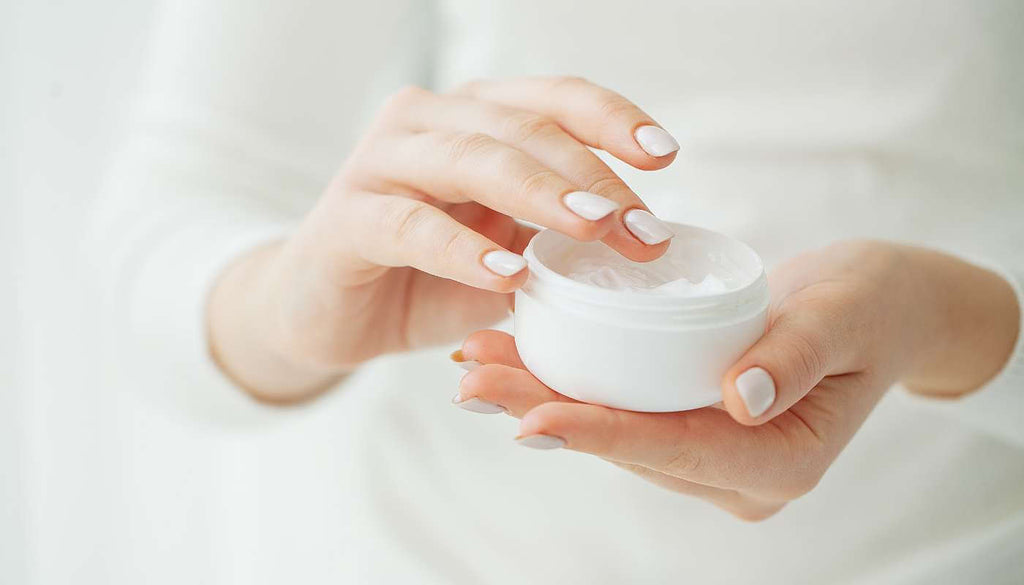
Why Natural is Not Always Best When it Comes to Skincare
I realise that the headline of this post may have you wondering if you're on the right blog. I bang on so much about how natural skincare products are better and how you should be buying organic, that you may be forgiven for thinking that I've lost the plot this week. But bear with me on this one. All will be explained.

A reader recently commented on how difficult it was to know who to believe. People like me are going on about how you should always use natural, blah blah, and yet if you go to a doctor or a dermatologist, they'll tell you to use things like Cetaphil. There's a great article here, without all the scare tactics, about why dermatologists like Cetaphil. It seems that dermatologists like Cetaphil because of the slightly acidic pH. Generally, because of the formulas, Cetaphil isn't going to irritate your skin even though there are some ingredients in there that are irritants. Here's the ingredients in Cetaphil's Moisturising Cream for Dry & Sensitive Skin:
Purified Water, Glyceryl Polymethacrylate (and) Propylene Glycol, Paraffin Soft White, Glyceryl Polymethacrylate, Peg-5 Glyceryl Stearate,Glycerol, Dimethicone (and) Dimethiconol, Cetyl Alcohol, Sweet Almond Oil, Acrylates/C10-30 Alkyl Acrylate Crosspolymer, AlphaTocopherol Acetate, Phenoxyethanol, Benzyl Alcohol, Disodium Edetate, Sodium Hydroxide, Lactic Acid.
The only natural ingredients in that are the water and sweet almond oil. Personally, I'd choose not to use Cetaphil because of the ingredients - propylene glycol, silicones, petrochemicals, etc. Petrochemicals aren't environmentally sound, and they're not a renewable resource. They can also have potential contaminants because of the way petrochemical ingredients are processed. However, it's rare for people to have allergic reactions to mineral oil (petrochemicals), as it's inert and that makes it good for sensitive skin. It creates a barrier on your skin and locks moisture in. This is why, if you've got eczema, you'll find that dermatologists tend to recommend petroleum based products.
Natural ingredients can also be harmful.
I get people telling me all the time that they won't use product X because it contains an ingredient that is used in some kind of industrial application. You need to apply some common sense to this. Shouting at me (well, telling me in capital letters) that propylene glycol is an INGREDIENT IN ANTI FREEZE isn't helpful. Water is also an ingredient in antifreeze, and I drink litres of the stuff every day. So far I'm doing okay. Although try to tell that to the new laptop I spilled a glass of water on a couple of months ago - not such a good result there. Dangerous stuff, that water. I've had someone tell me before that SAPs (the absorbent gel crystals in disposable nappies) are dangerous if injected. Well, here's an idea - don't inject it. Use it the way it's supposed to be used. Oranges are good for you. They're full of vitamins and minerals and they taste great, too. But take a bottle of orange essential oil and you'll find that it's a hazardous product. Warnings include:
- May be irritating to skin, eyes, and respiratory tract.
- Flammable liquid and vapour.
- May be fatal if swallowed and enters airways.
- Causes skin irritation.
- May cause an allergic skin reaction.
- Very toxic to aquatic life with long lasting effects.
Why is that? As we've said before, it's the dose that makes the poison. Orange oil is highly concentrated, and although it's natural, it's not found in nature in such high concentrations. A drop of orange oil in a skincare product isn't going to be a problem for most people, but a drum of orange oil is hazardous. That said, if you know you're allergic to oranges, or find that they're irritating, you should avoid them in skincare products. And don't tell me it's better for you because it's natural - think of lead in makeup that was used in the Elizabethan age. Lead might be natural, but it's also poisonous.
When you shouldn't use natural ingredients
If you have eczema or damaged skin, using skincare that contains a food product may lead to allergic reactions to that food later on, even if you've never had an allergic reaction to that food before.
There was a case of a woman who used a goat's milk moisturiser on her skin when she had eczema, and later had a life threatening allergic reaction when she ate goat's cheese. Researchers believe that people with eczema have developed food allergies after using skincare products containing wheat, oat, peanut and goat’s milk. The authors advise eczema patients to avoid skin care products and cosmetics that contain food ingredients. It's been shown before now that children with eczema are at a greater risk of developing food allergies. It's thought that the breakdown in the skin barrier (which is what happens to eczema sufferers' skin) may contribute to an allergic immune response in food.
If you have eczema, the research suggests that you should be careful applying food products to your skin. So skip the coconut oils, almond oils and goat's milk products and choose shea butter or jojoba oil instead. If that's not working, you may need to use what the dermatologist or doctor recommends simply because the formula is more suitable for people with eczema, even if the ingredients aren't the greatest. For most of us, however, using certified natural and organic skincare products is a better option. It's easier to avoid the problematic ingredients like synthetic perfumes, parabens, and preservatives and you may find that your skin is better for it.










